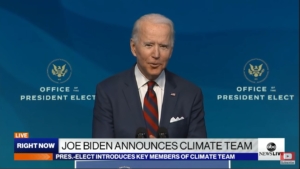Your Exclusive Guide to the Never-Ending “Infrastructure Week”
Here’s What You Need To Know
The last month in Congress looked a little like Groundhog Day as legislators moved closer than ever to passing major infrastructure investments, only to have the apparent consensus crumble over how and whether the bill should be linked to President Joe Biden’s broader “Build Back Better” reconciliation package.
For those wondering what happened and why the so-called “Infrastructure Week” seems to never end in Washington, our team of analysts dug deep to produce an important report for your consideration.
“Digging Deep: Why ‘Infrastructure Week’ Just Won’t End” details 10 of the biggest fights on the horizon – far beyond the sensational headlines of price tag squabbles and intraparty meltdowns. Our analysis instead focuses on the numerous unsettled debates beneath those headlines in which competing interests clash and the infrastructure debate will keep on going long after whatever bill is eventually signed into law.
Subscribe to Receive Insights
"*" indicates required fields
As we explored the consequences of these proposals for a wide array of industries – energy, environment, FinTech, pharmaceuticals, transportation, telecommunications – several key themes emerged. Here’s what you need to know:
The Energy Transition Has Unlikely Opponents
The Infrastructure Investment and Jobs Act (IIJA) encourages industry to invest in technology and infrastructure that reduces emissions and greens the grid. But as is increasingly the case for a variety of alternative energy projects, such solutions face obstacles from the very environmentalists advocating for cleaner options. While the IIJA has been called the “most ambitious portfolio of carbon management policies in the world to date,” tools like carbon capture remain immensely controversial among green activists and their allies among lawmakers. Activists are similarly concerned about what they call “the hydrogen hype,” for which the IIJA provides significant support. Beyond these individual technologies, the bill would support a transmission line buildout to bring renewable energy from where it is best generated to where it is most needed. However, new authority granted to FERC by the IIJA is likely to face a variety of opponents including state regulators, environmentalists, and incumbent power producers.
President Biden’s Desire for Streamlined Permitting Clashes With His Efforts To Expand Public Participation
President Biden wants more infrastructure built more quickly. That’s why the IIJA seeks to streamline permitting. However, his administration also wants to expand public participation and include broader climate and environmental justice considerations into such decision-making, inevitably prolonging the process. Already, environmental groups are criticizing IIJA’s permitting provisions, complaining they “gut needed safeguards” and “curtail the way the public can weigh in on how projects building roads, laying pipelines, cutting timber, and mining for hard-rock materials are done.” Such groups are better-funded, better-organized, and more legally proficient than ever before, making them highly adept at using public comment periods and public engagement processes as a means of delaying and derailing infrastructure projects they oppose. That means they are likely to question any new limitations on public engagement in their legal challenges to permitted projects.
Being a Convenient Pay-for Can Cost an Industry Big
Lawmakers seeking to pay for their ambitious suite of proposals are targeting a variety of industries to help foot the bill for IIJA. For example, lawmakers proposed billions in new Superfund excise taxes on a dozens of chemicals, critical minerals, and metallic elements. The superfund taxes are the result of a “dozen years” fight to “hold polluters accountable,” and represent just how quickly a heated but seemingly settled issue can become a convenient pay-for when legislators seek to fund other priorities. In addition to the superfund provisions, pharmaceuticals, cryptocurrency “brokers”, and others all play undesired roles in funding the IIJA’s many initiatives. Organizations in these sectors were probably surprised to learn they would be responsible for covering the costs of one of America’s most expensive pieces of legislation in history, and that puts them – and their allies on Capitol Hill – at odds with IIJA.
For Some Long-sought Objectives, Passing the Bill Will Just Be the End of the Beginning, Not the Beginning of the End
IIJA seeks to advance several long-sought objectives that have run aground in the past due to unsettled debates about how to implement those initiatives. Even if IIJA passes, these challenges remain. One such area is IIJA’s electric vehicle provisions, which set the stage for fighting among states and localities for charging infrastructure. Similarly, the bill proposes to invest billions to fund initiatives to ensure access to drinking water free of contaminants such as lead and PFAS, as well as to “expand Internet access” to underserved and low-income communities. However, in both of these cases, significant implementation hurdles, and major regulatory uncertainty means even if IIJA passages, the communities targeted by the bill, and those who serve them, are unlikely to be able to tap into the IIJA’s funds in the near term.
Get an Information Advantage With an Exclusive Copy of Our eBook
No matter how long or what form it takes, the infrastructure bill will affect countless companies and industries. So, chances are it will affect your organization, too.
Smart public affairs professionals understand that to achieve desired results, they need to anticipate what’s next and organize support ahead of time. That’s why competitive intelligence is the foundation for any successful public affairs effort.
To dig deeper and better understand what comes next in the never-ending Infrastructure Week, click here to download the full report. As you prepare for the big fights to come, you’ll be armed with the information advantage you need to win what matters.



